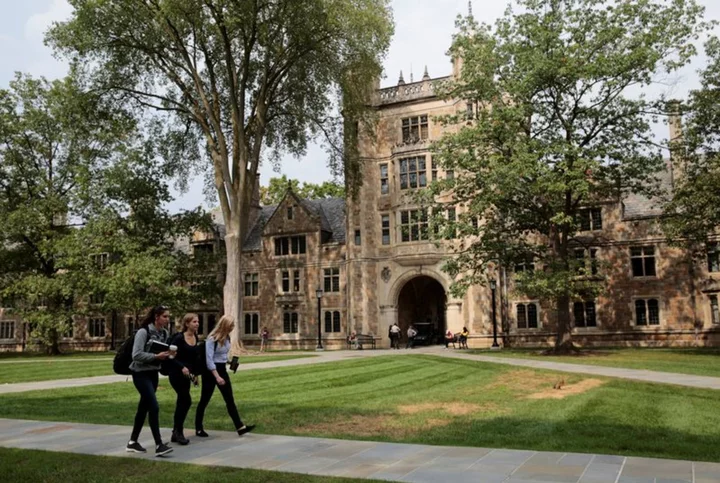U.S. News & World Report announced changes to the methodology of its controversial Best Colleges rankings to emphasize the success of diverse students and to remove the influence of alumni giving and class size, the media company said in a statement.
The 2024 Best Colleges rankings, set to be released in phases last Friday through this week, will feature more emphasis on a school's "success in graduating students from different backgrounds," the company said.
In addition, the methodology will remove metrics on alumni giving, faculty with the highest degrees in their fields, class size and high school standing of the entering class. Those will be included in school profiles but not in the rankings themselves.
The changes come amid longstanding backlash to the U.S. News rankings, the popular and influential listicle closely monitored by schools, alumni, parents and students alike.
Since its founding 40 years ago, U.S. News has repeatedly tweaked its methodology, although the schools atop the rankings -- primarily the Ivy League schools and several California universities -- have generally remained the same.
According to the 2022-2023 rankings, Princeton is rated No. 1 among national universities, with Massachusetts Institute of Technology second and Harvard, Stanford and Yale tied for third.
Critics say the rankings feed into the obsession with elite status rather than a school's specific fit for a particular student. The college admissions scam known as "Operation Varsity Blues," for example, laid bare the lengths that wealthy parents were willing to go to get their children into universities perceived as more prestigious.
Some universities have also manipulated the rankings, intentionally or not. In 2021, the former dean of Temple University's business school was convicted of conspiracy and fraud for a scheme to use false data to boost the school's rankings.
In addition, Columbia University acknowledged in 2021 it had relied on "outdated and/or incorrect methodologies" in submitting data to U.S. News, and in 2019, U.S. News said the University of Oklahoma gave "inflated" data on alumni giving rates for two decades.
US Department of Education Secretary Miguel Cardona last year criticized how the rankings had warped incentives for schools.
"Too often, our best-resourced schools are chasing rankings that mean very little on measures that truly count," he said. "That system of ranking is a joke."
He criticized the "whole science behind climbing up the rankings," which he said emphasizes wealth and affluence instead of broad opportunity.
Last year, Yale and Harvard law schools bowed out of the U.S. News rankings of the Best Law Schools, criticizing the publication's methodology and arguing that the list actively perpetuates disparities in law schools.
"While I sincerely believe that U.S. News operates with the best of intentions, it faces a nearly impossible task, ranking 192 law schools with a small set of one-size-fits-all metrics that cannot provide an accurate picture of such varied institutions," wrote Heather Gerken, the dean of Yale Law School.
Despite the criticisms, U.S. News insists the rankings help students make informed decisions in the increasingly high-pressure and expensive world of higher education. In its statement Friday announcing changes, U.S. News also said it will release new tools to help students explore based on individual interests and needs.
"Helping students find the school that is right for them is the core of everything we do in our education vertical," Eric Gertler, executive chairman and CEO of U.S. News, said in a statement.
"With college costs soaring, we want to ensure the educational resources we provide emphasize the outcomes for graduates of the schools in our rankings. This, in conjunction with the other outcomes-focused measures we are adopting, will further support a student's decision-making process when they are making one of the most important decisions of their lives."









